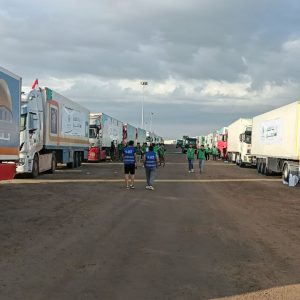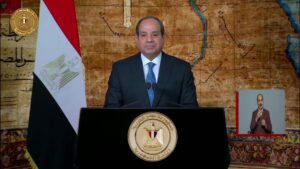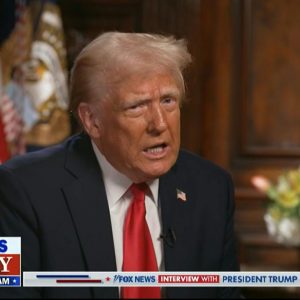South Africa ‘concerned’ over US ‘propaganda’ about land law
JOHANNESBURG (AA) – South Africa has expressed concern over US “propaganda” and “misinformation” after President Donald Trump froze Washington’s aid to the country, citing the recently adopted land appropriation law and Pretoria’s genocide case against Israel.
“We are concerned by what seems to be a campaign of misinformation and propaganda aimed at misrepresenting our great nation. It is disappointing to observe that such narratives seem to have found favor among decision-makers in the United States of America,” South Africa’s Foreign Ministry said in a statement.
The reaction came after Trump said the US “cannot support the government of South Africa’s commission of rights violations in its country or its undermining United States foreign policy, which poses national security threats to our Nation, our allies, our African partners, and our interests.”
Trump also cited South Africa’s genocide case against Israel at the International Court of Justice (ICJ), and Pretoria’s closer ties with Iran as reasons for cutting aid.
Pretoria has said it only received US aid for the prevention of HIV/AIDS in the country.
The Trump order also includes a provision for assisting Afrikaners, an ethnic group in South Africa made up of descendants of Dutch settlers, to resettle in the US as refugees escaping alleged government-sponsored race-based discrimination.
“It is ironic that the executive order (of Trump) makes provision for refugee status in the US for a group in South Africa that remains amongst the most economically privileged, while vulnerable people in the US from other parts of the world are being deported and denied asylum despite real hardship,” the ministry added.
Since Trump took office last month, Washington has flown out hundreds of undocumented migrants from the country while strengthening border areas to disallow anyone to enter the US illegally.
The new law aims to address injustices of the apartheid and allows for the expropriation of land without compensation in conditions where it is “just and equitable and in the public interest.”
Land is a sensitive issue in South Africa, where the majority of natural resources are concentrated in the hands of a few white people. During the apartheid era, Black people and non-whites were ousted from their lands.
Most commercial farms in the country that produce the bulk of food are owned by whites, especially the Afrikaners.
President Cyril Ramaphosa said the land expropriation legislation will help alleviate huge disparities in land ownership stemming from colonial settlement and the subsequent institution of racial segregation and white-minority rule.










